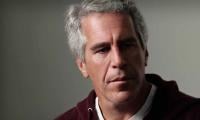Fractured healthcare
The Russian invasion of Ukraine epitomizes many of the challenges children face today, by inflicting serious damage to children’s health and quality of life. By the middle of May 2022, more than 6.1 million people had fled Ukraine, half of them children. Millions more have been internally displaced. 90 percent of Ukrainian refugees are women and children. Since the beginning of the conflict, hundreds of children have been killed.
In addition, the damage to schools and hospitals has negatively affected education and health services. According to Ukraine’s Ministry of Education and Science by the end of March more than 500 education facilities, some of which had been used as civilian shelters, have been damaged.
The forced eviction from their homes and unfamiliar personal and social environments are considered Adverse Childhood Experiences (ACE). They impair children’s cognitive development and their physical and mental health. As a result of an elevated level of ACEs resulting from war, many Ukrainian children now suffer from post-traumatic stress disorder (PTSD) that, if not addressed with social support, therapy and sometimes medication, can have long-term negative effects on children’s quality of life. According to Unicef, “every child caught in the conflict in eastern Ukraine is now thought to be in need of psychosocial support.”
Aside from unrelenting bombing attacks, Ukrainians face the challenge of the ongoing Covid pandemic. Basements of theaters and churches, crowded trains and subway stations and refugee processing units increase the risk for other infectious diseases such as tuberculosis (TB), measles and polio. Because of the war, it is difficult to make a real estimate of the actual numbers of patients suffering from those diseases.
Primary care, screening and immunization programs have been affected. Supply of potable water and functioning sanitation systems have been disrupted. Disruptions of care for chronic and for infectious diseases have a detrimental long-term impact on people’s health. Low vaccination rates among Ukrainians – particularly children – puts them at risk of outbreaks of vaccine-preventable diseases.
Several organizations working against trafficking of human beings have warned that Ukrainian refugees – particularly unaccompanied minors – are at risk of falling into exploitation and violence, including sexual violence. German authorities advise refugees not to accept help from unidentified people at train stations, and have increased the number of undercover police officers at train stations and other gathering places.
The Russian army attacks on health facilities, including hospitals and maternity wards, have been repeatedly denounced by international health agencies. “To attack the most vulnerable – babies, children, pregnant women, and those already suffering from illness and disease, and health workers risking their own lives to save lives – is an act of unconscionable cruelty,” said a March 13 joint statement from the World Health Organization (WHO), the United Nations Children’s Fund (UNICEF) and the UN Population Fund (UNFPA).
On April 7, the WHO’s Surveillance System for Attacks on Health Care had verified 103 attacks on health facilities, impacting transport units such as ambulances. “We are outraged that attacks on health care are continuing. Attacks on health care are a violation of international humanitarian law,” said Dr Tedros Adhanom Ghebreyesus, WHO Director-General. Attacks on health facilities are also a clear violation of Geneva Conventions tenets.
“Across Ukraine, 1000 health facilities are in proximity to conflict areas or in changed areas of control. Health workers throughout the country are risking their lives to serve those in need of medical services, and they, and their patients, must never be targeted. Further, when people are prevented from seeking and accessing health care, either because the facilities have been destroyed or out of fear that they may become a target, they lose hope. The mental health toll wreaked by the war cannot be underestimated, affecting civilians and the health workforce alike,” explained Dr Jarno Habicht, WHO Representative in Ukraine.
Excerpted: ‘War has Wreaked Havoc on Ukraine’s Public Health System’.
Courtesy: Commondreams.org
-
 Charlize Theron Delivers Strong Message At 2026 Winter Olympics Opening Ceremony
Charlize Theron Delivers Strong Message At 2026 Winter Olympics Opening Ceremony -
 Lil Jon Reacts To Son Nathan Smith's Death: 'Devastated'
Lil Jon Reacts To Son Nathan Smith's Death: 'Devastated' -
 Bianca Censori Reveals Where She And Kanye West Stand On Having Children Together
Bianca Censori Reveals Where She And Kanye West Stand On Having Children Together -
 Taylor Swift Hypes Olympic Athletes In Surprise Video Message
Taylor Swift Hypes Olympic Athletes In Surprise Video Message -
 Timothy Busfield Charged With Four Counts Of Child Sexual Abuse
Timothy Busfield Charged With Four Counts Of Child Sexual Abuse -
 Kanye West First Contacted Bianca Censori While In Marriage To Kim Kardashian?
Kanye West First Contacted Bianca Censori While In Marriage To Kim Kardashian? -
 Travis Kelce Reveals What His Nieces Really Do When He, Taylor Swift Visit
Travis Kelce Reveals What His Nieces Really Do When He, Taylor Swift Visit -
 Lola Young Makes Career Announcement After Stepping Back From Touring
Lola Young Makes Career Announcement After Stepping Back From Touring -
 Priyanka Chopra Shares Heartfelt Message For Nick Jonas
Priyanka Chopra Shares Heartfelt Message For Nick Jonas -
 Spotify, Major Labels File $13b Lawsuit Over Alleged Music Scraping
Spotify, Major Labels File $13b Lawsuit Over Alleged Music Scraping -
 Travis Kelce Opens Up About Being Backup Plan For His Nieces
Travis Kelce Opens Up About Being Backup Plan For His Nieces -
 Winter Olympics 2026: Chinese Robot Dance Goes Viral In Milan
Winter Olympics 2026: Chinese Robot Dance Goes Viral In Milan -
 Jessica Biel Urged To Divorce Justin Timberlake?
Jessica Biel Urged To Divorce Justin Timberlake? -
 Rebecca Ferguson Gets Honest About Having First Kid With 22 Year Older Man
Rebecca Ferguson Gets Honest About Having First Kid With 22 Year Older Man -
 Epstein Ties: UK Police Search Properties In Probe Into Peter Mandelson
Epstein Ties: UK Police Search Properties In Probe Into Peter Mandelson -
 Andrew Mountbatten-Windsor’s Friendship With A Child Sex Offender Turns His Future Murkier
Andrew Mountbatten-Windsor’s Friendship With A Child Sex Offender Turns His Future Murkier



